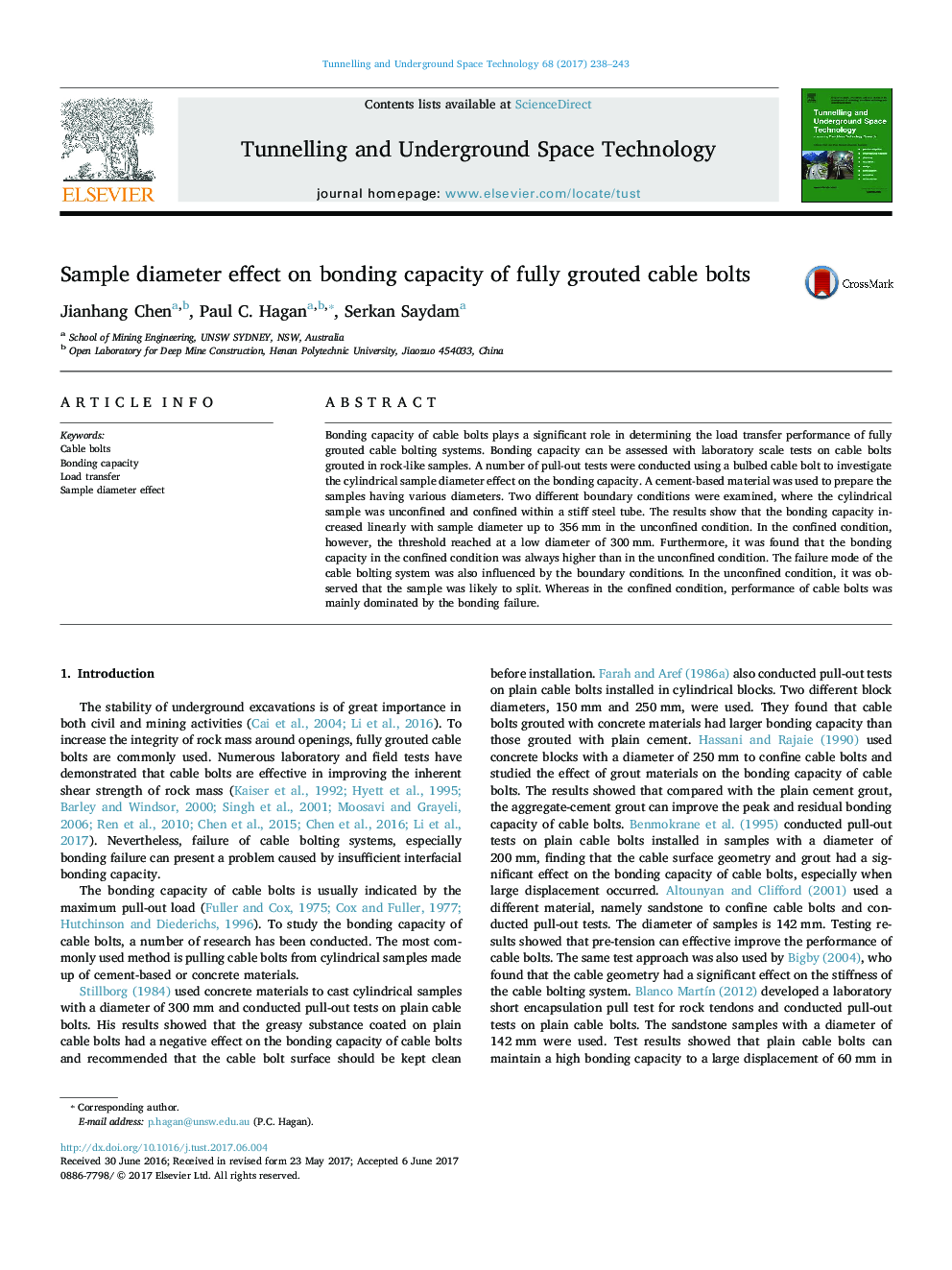| Article ID | Journal | Published Year | Pages | File Type |
|---|---|---|---|---|
| 4929364 | Tunnelling and Underground Space Technology | 2017 | 6 Pages |
Abstract
Bonding capacity of cable bolts plays a significant role in determining the load transfer performance of fully grouted cable bolting systems. Bonding capacity can be assessed with laboratory scale tests on cable bolts grouted in rock-like samples. A number of pull-out tests were conducted using a bulbed cable bolt to investigate the cylindrical sample diameter effect on the bonding capacity. A cement-based material was used to prepare the samples having various diameters. Two different boundary conditions were examined, where the cylindrical sample was unconfined and confined within a stiff steel tube. The results show that the bonding capacity increased linearly with sample diameter up to 356Â mm in the unconfined condition. In the confined condition, however, the threshold reached at a low diameter of 300Â mm. Furthermore, it was found that the bonding capacity in the confined condition was always higher than in the unconfined condition. The failure mode of the cable bolting system was also influenced by the boundary conditions. In the unconfined condition, it was observed that the sample was likely to split. Whereas in the confined condition, performance of cable bolts was mainly dominated by the bonding failure.
Keywords
Related Topics
Physical Sciences and Engineering
Earth and Planetary Sciences
Geotechnical Engineering and Engineering Geology
Authors
Jianhang Chen, Paul C. Hagan, Serkan Saydam,
